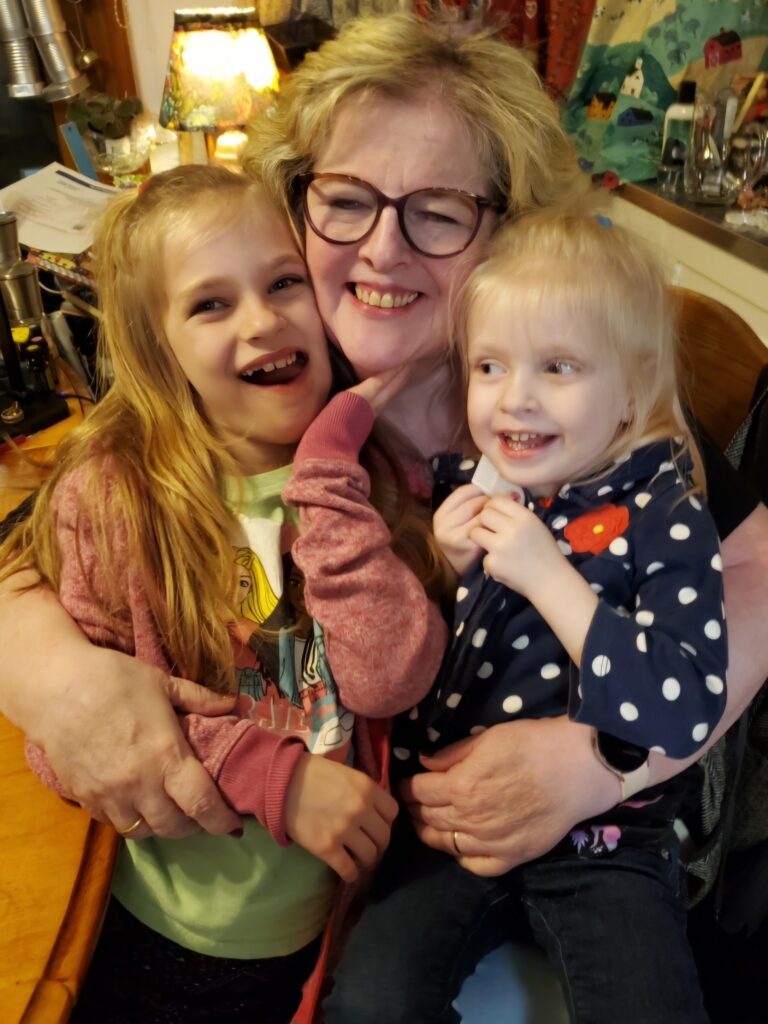“I got the exact same thing that I was getting in the hospital.”

Just after Thanksgiving of last year, Laura found herself in the emergency room at Penn State Health Milton S. Hershey Medical Center, struggling with the symptoms of a serious infection. “I felt feverish, my muscles ached and I just felt horrible,” she recalls. Unfortunately, she was already too familiar with feeling exactly this way — she’d just been discharged home from the hospital the week prior after a long stay for intravenous (IV) antibiotics for a bloodstream infection.
Understandably, she wasn’t eager to leave home yet again for another hospital stay. That’s why, when she was approached by a team from the Penn State Health Home Recovery Care program, she was ecstatic.
A relief to return home for hospital-level care
“When they came in, they were like two little angels hopping and jumping around, they were so full of joy. I couldn’t help but be excited about it. It just made my whole day,” Laura says of the Recovery Care Coordinators (RCCs) who explained the program to her. As a retired registered nurse, she says, “I was blown away when they first came in and told me about it.”
With Home Recovery Care, Laura would receive continued treatment for her infection at home, with twice daily nursing visits, remote monitoring of her vital signs, around-the-clock support in case of any questions or concerns and telehealth visits with a program physician. “I got the exact same thing that I was getting in the hospital,” Laura shares.
Because she would be at home, she also had the relief of knowing that her husband could more comfortably rest and relax. She explained that when she first started feeling sick again, she also hesitated to return to the emergency room because of his well-being. “The thing that kept me from going was that I hate sitting in the emergency room, and my husband has to sit there with me, and he’s pretty physically disabled.”
Advanced care capabilities in the home
Once she was home receiving care, Laura says of the staff, “They were so organized, and they had everything right down, and every one of them was so pleasant and it just went so well. There was no confusion about anything. I felt like I could be in my own place and come and go as I wanted and not have to worry about it.”
It wasn’t just the caregivers that were top-notch, though, Laura explains. “I was really amazed at the stethoscopes they used and how they could send recordings.” She notes that the technology even identified a known heart murmur correctly. And there was an unexpected benefit to her telehealth visits with the doctor: “With the tablet itself and the communication with the doctor, it was easier for me to hear, because I’m profoundly hearing impaired,” she says. “At the medical center, when I had doctors come in, it’s a different environment, they’re talking behind masks, and I couldn’t increase the volume. With the tablet, I could change the volume and I could bring it as close to me as I needed to.”
No more worries
Laura says that the best part of the Home Recovery Care program was the way it reduced her worries. “You get to be home, in your own place, but still have access to call and be able to say, ‘I have this going on,’” she shares. “Because sometimes just sitting here at home, I think, ‘should I call the doctor, or should I wait until morning?’ But I didn’t have to do that. If I wanted, I could call — just the knowledge that someone was right there if I needed them helped.”
She adds, “It took away a ton of stress for me. They said they’ll do all the follow-ups, and make appointments, and that is such a relief to not have to worry about that. All of my anxiety just kind of disappeared quickly, my mind was at peace, and I just felt like myself again.”
She emphasized that she would recommend the program to anyone who can take advantage of it. “People recover better in their own environment. I am so thrilled that we went through with it.”
